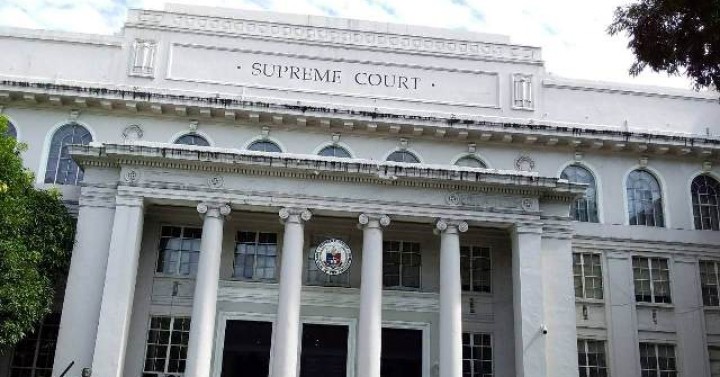News
SC junks petition challenging Bayanihan law, ECQ in Luzon
MANILA – The Supreme Court (SC) has dismissed a petition challenging the validity of Republic Act No. 11469 or the Bayanihan to Heal As One Act and presidential proclamations on the government’s strategy in responding to the coronavirus disease (Covid-19) pandemic.
In a statement Wednesday, the SC Public Information Office said the Court’s en banc, in its session on Tuesday, dismissed the petition filed by former Laguna State Polytechnic University dean Jaime Ibañez “as it failed to show grave abuse of discretion committed by its respondents”.
Named in the suit filed last month were Cabinet Secretary Karlo Alexei Nograles, Health Secretary Francisco Duque III, and the Inter-Agency Task Force (IATF) for the Management of Emerging Infectious Diseases (IATF-EID).
Three magistrates, Associate Justices Alexander Gesmundo, Marvic Leonen, and Samuel Gaerlan dissented from the majority opinion, it added.
The High Court said it will release the full copy of the resolution once available from the Office of the Clerk of Court.
The suit filed by Ibañez sought to declare the Bayanihan law and Presidential Proclamations 922 and 929 as “partly unconstitutional” due to the Covid-19 pandemic.
Proclamation No. 922 issued on March 8 declared a state of public health emergency in the country while Proclamation 929 issued on March 16 declared a state of calamity nationwide and imposed an enhanced community quarantine throughout Luzon.
Among other things, Ibañez claimed the case involves undue exercise of delegated legislative power.
In March, Congress enacted the Bayanihan law which authorized President Rodrigo Duterte to exercise powers that are necessary and proper to carry out the declared national policy in responding to the health crisis.
The law, which lapsed on June 25, also required the President to submit a weekly report to Congress.






















